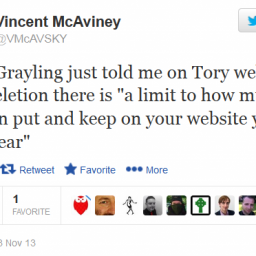
This is one of the few podcasts I always make sure to listen to because it explains a very complicated situation in bite-size, but nutritional/educational chunks. Like Nightline, created around the Iran Hostage Crisis in 1979 and serving as a source of in-depth investigative journalism until 2005, Planet Money has the opportunity to use our present financial crisis to serve as a new type of journalism — one that successfully incorporates social media.
So what is Planet Money?
“Planet Money” is an NPR multimedia team covering the global economy. It’s also the name of our blog, Twitter feed and podcast. [They allow readers to interact by] … e-mail us directly and/or join[ing] our Facebook group. Interactions with the public follow rules for discussion.]
We think a lot of people feel overwhelmed by the global economy. They know it’s affecting their lives. But they don’t know how to dive in, and they don’t find most stories in most media outlets helpful.
We think this because we feel the same way. But we’re lucky. We work at NPR and can call the leading economic thinkers and ask them to explain things to us. Slowly.
So we’re building what we hope will be a fun, safe, exciting, accessible place for people to explore the global economy and what it’s doing to them. We have two rules for ourselves: 1. Everything has to be interesting (and, preferably, fun or funny or poignant or somehow grabby). 2. Everything should be economically smart, but not economically dull.
Planet Money began based on This American Life’s amazing report on the subprime mortgage collapse, “The Giant Pool of Money,” or read the transcript (PDF). The first Planet Money podcast was really a co-production with This American Life, “Another Frightening Show About the Economy.”
But Planet Money doesn’t leave traditional media forms behind. One of their stories was a co-production with the New York Times about the worldwide implications of the debt taken on by public entities, such as one Wisconsin school system. And this story was not only in print and and on the podcast, but also on NPR’s Morning Edition.
The first few shows were especially exciting because it was clear that everything was being done on the fly. Yet the social networking tools were created within the mission statement above, with the goal of interactivity — so important for all media, but especially for public radio, which depends on the public taking action to keep them on the air.
One of the most interesting aspects of Planet Money is the seamless way old terminology and new terminology work side by side. One of those up-to-date people who understands RSS? You can add a feed. Prefer a daily newsletter (really just an email RSS)? Sure! Not comfortable emailing to Planet Money’s address? You can contact via a web form. It also is likely the only place where Warren G’s Regulate has been used to highlight a news story about government regulation — hilarious, yet highly bizarre.
Both the information architects and the content providers of NPR have created one of the go-to places for information about the economy. And the input of readers and listeners is making the experience more valuable for other listeners and readers. Considering the Planet Money “experience” has been around for only a few months, I look forward to seeing what the future brings.





[…] at TLF we are both fans of Planet Money, as a production, and as an effective model for traditional media outlets to engage listeners via […]